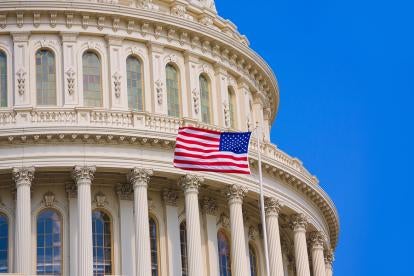Congress is currently considering a bill that if enacted would require “major rules” to receive approval from both the House of Representatives and the Senate before going into effect. The bill defines major rules using current standards—which, among other categories, cover rules that have or are likely to have an annual economic impact of $100 million or more—as well as a new standard covering rules issued under the Patient Protection and Affordable Care Act. The bill’s stated purpose is to “increase accountability for and transparency in the Federal regulatory process” in response to a perception that Congress has “excessively delegated” legislative power to executive agencies over time. The bill passed in the House of Representatives at the end of July, and a Senate version of the bill has already garnered support.
Under the current framework established by what is popularly known as the Congressional Review Act, a major rule generally takes effect sixty days after either the date on which an agency reports the rule to Congress or publishes the rule in the Federal Register. Congress may prevent a major rule from going into effect by passing a joint resolution disapproving of the rule, which must be either signed by the President or subject to a congressional override. A limited subset of rules governing monetary policy are exempt from this process. In addition, an agency may independently establish an effective date for rules relating to hunting, fishing, or camping and any rule for which “notice and public procedure” are formally determined by an agency to be “impracticable, unnecessary, or contrary to the public interest.” To date, the Congressional Review Act has only been successfully used to prevent a single rule from taking effect.
The pending bill proposes to modify the current framework applicable to major rules by enacting the “Regulations from the Executive in Need of Scrutiny” or “REINS” Act. Under the REINS Act, a major rule would generally only take effect upon the passage of a joint resolution by Congress with either approval from the President or a congressional override. If a joint resolution is not enacted within seventy days in which each House of Congress is in session after receiving an agency report on a particular rule, the rule would not take effect and could not be reconsidered in the same Congress. The President could only authorize the rule to take effect for a single ninety-day period in limited circumstances, such as in response to an emergency or for national security. The REINS Act largely continues exemptions currently applicable under the Congressional Review Act, but agencies would no longer be permitted to independently establish an effective date for major rules for which notice and public procedure are determined to be impracticable, unnecessary, or contrary to the public interest.
Although similar versions of the REINS Act were passed by the House of Representatives in 2011 and 2013, the constitutionality of the Act continues to be subject to debate. The dissenting views included in 2011, 2013, and 2015 Committee Reports on the Act, as well as in a hearing held in 2013, have argued that Congress’s ability to prevent a major rule from becoming effective by failing to pass a joint resolution is essentially identical to the one-House veto of executive action that the Supreme Court found to be unconstitutional in INS v. Chadha, 462 U.S. 919 (1983), based on a violation of the doctrine of separation of powers and the dual constitutional requirements of bicameralism and presentment. As the Court explained in Chadha, “Congress must abide by its delegation of authority [to the executive] until that delegation is legislatively altered or revoked” in a manner that complies with the principles of bicameralism and presentment. That the REINS Act allows one House of Congress to prevent an executive agency from implementing a rule that is within the bounds of its delegated discretion may impermissibly reserve for that House legislative control over executive action. Supporting views expressed in the same Committee Reports and hearing, however, have argued that any congressional action that may be taken under the Act satisfies the principles of bicameralism and presentment because the REINS Act would be passed through the ordinary legislative process and, in making an affirmative judgment under the Act about a particular rule, Congress would be required to enact a joint resolution that that would be subject to presidential review. According to these views, the REINS Act simply “makes conditional” Congress’s delegation of legislative power to executive agencies, allowing agencies to propose major rules for Congress’s consideration.
Unfortunately, outstanding questions relating to the constitutionality of the REINS Act may not be resolved in the near future given that the Senate failed to pass previous versions of the Act and a statement issued by the Obama Administration indicates that the bill currently pending before Congress would likely be vetoed. A congressional override appears unlikely in these circumstances considering the current makeup of Congress and the history of party-line voting with respect to the Act. However, that the Act has continued to appear and gain popularity in the last three successive sessions of Congress suggests that its constitutionality may once again be placed in the spotlight after the next shift in congressional or presidential fortunes.





 i
i

